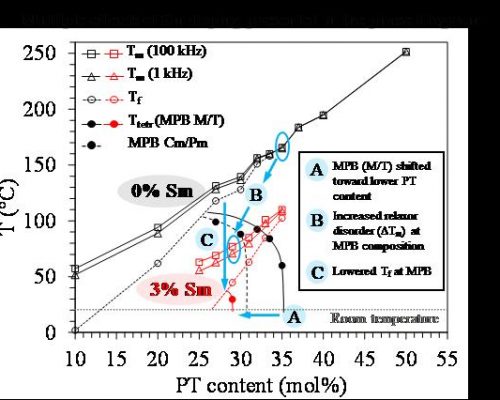
Researchers from the Department of Electronic Ceramics (Matija Arzenšek, Urh Toš, Silvo Drnovšek, Mirela Dragomir, Hana Uršič, Mojca Otoničar, Tadej Rojac) together with colleagues from the University of Vilnius, Lithuania (Sarunas Svirskas, Paulius Jankauskas) published an article in the journal of Science Advances . The paper addresses the key question of the origin(s) of the unusually high piezoelectric responses in the Pb(Mg1/3Nb2/3)O3–PbTiO3 (PMN–PT) ceramic system modified with samarium ions. While previously published studies report on various mechanisms, they usually do so in the context of the so-called “universal” mechanisms, which are typically focused on a single aspect of the material. Using a combination of nonlinear piezoelectric harmonic analysis and structural analysis over multiple length scales, the authors of the paper concluded that the high piezoelectric response cannot be attributed exclusively to a single mechanism. A coherent picture can only be achieved by combining various intrinsic and extrinsic dynamic contributions and by taking into account the complex influence of the samarium dopant on the local and average structure of the material. The paper also emphasizes the strong pressure in the research community to publish scientific papers (typically in high-impact journals) with high-profile “universal” explanations.
